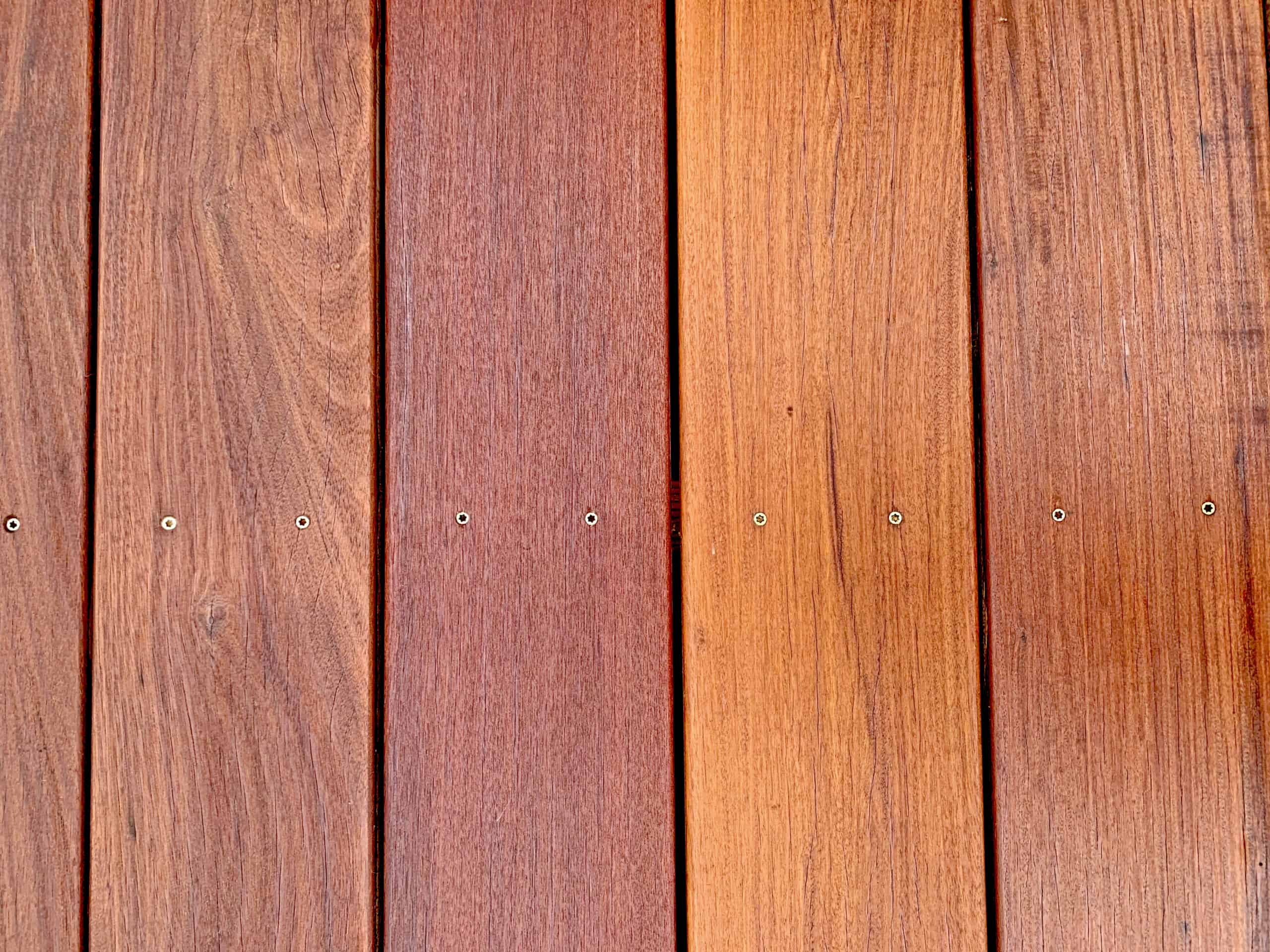
Discover The Best Exotic Hardwoods for Decks and Docks
The sturdiest and most attractive decks and docks need to be made out of the best materials. And when only natural wood will do, quality-minded homeowners turn to exotic hardwoods for their beauty and ability to stand up to the elements.
There are several different types of exotic hardwood out there, so we’ve created this easy guide to some of the best: ipe, garapa, tigerwood, and cumaru. These hardwoods can transform your deck or dock to a luxury outdoor living space.
Let’s discuss these woods, their benefits, and how to choose the right exotic hardwood for you.
What is exotic hardwood?
Hardwoods come from angiosperm trees and are typically denser and more durable than softwood.
Exotic hardwoods refer to lumber sourced from tropical regions, like Brazil. Exotic hardwoods are prized for their sturdiness, beauty, and ability to produce natural oils that repel insects (like termites) that try to bore into lumber.
There are many types of exotic hardwoods, but at Decks & Docks, we carry only the best of the best.
1. Ipe
You can’t get much better than ipe (pronounced “ee-pay”) hardwood. This Brazilian wood is famous for being extremely weather-resistant and can last for over 50 years without needing a replacement. Ipe has a rich warm brown color that gives any deck a touch of luxury.
Ipe does require some regular maintenance to stay in peak condition and is one of the priciest hardwood options, but with regular cleaning and resealing, your ipe deck or dock can last for decades.
Benefits of Ipe Wood
- Durability. Ipe hardwood can last upwards of 50 years when properly maintained—much longer than regular softwoods that need replacing after 15-20 years. Ipe is often described as literally being “as tough as nails.”
- Resistance to rot and insects. The natural oils in ipe repel insects, and it’s also quite resistant to rot and mildew.
- Flame resistance. Ipe hardwood measures up to concrete and steel when it comes to fire resistance. That doesn’t mean it’s fire-proof, but it does mean fire spreads slower.
2. Garapa
Also called Brazilian ash, garapa is a hardy, dense wood that comes in attractive golden brown shades. It’s a lighter-colored and more budget-friendly alternative to ipe wood, and just as long-lasting.
Garapa readily holds off insects and marine life, and its density allows it to resist mold and rot better than softwoods.
Benefits of Garapa Wood
- Versatile appearance. The light honey colors and straight grain of garapa are able to fit in with almost any style of deck or dock.
- Fire-resistant. Like ipe, garapa hardwood is given the same fire safety rating as concrete and steel.
- Easy maintenance. With proper sealing, garapa is less prone to splintering and warping over time. It’s a breeze to clean, too—just wipe with water and deck cleaner, and reapply sealer once a year.
- Budget-friendly. Some rare exotic hardwoods can come with a hefty price tag, so garape can be a great option if you’re on a budget.
3. Cumaru
Cumaru, also known as tonka bean or Brazilian teak, is a medium/dark brown exotic hardwood prized for its relatively lower cost and ability to resist decay and weathering.
It has a density similar to ipe, though the colors of cumaru tend to be less rich and luxurious than higher grade hardwoods.
Benefits of Cumaru
- Strong against weathering. The durability of cumaru makes it an excellent choice for outdoor projects that need to hold strong against rain, wind, and seawater.
- Long life expectancy. When well-maintained, cumaru can last for decades.
- Affordable. Cumaru is significantly less expensive than other hardwoods.
- Even color. There’s very little color variation within planks of cumaru, meaning you’ll get an even and consistent warm medium-brown hue throughout.
4. Tigerwood
Tigerwood is notable for its gorgeous striped grain pattern that gives this hardwood its name. It’s a bold and beautiful choice for any outdoor living space, though it has a slightly lower lifespan than higher-quality options. It lasts for up to 25-30 years when used for an outdoor deck.
Tigerwood is often used for flooring because it’s tough and doesn’t dent easily.
Benefits of Tigerwood
- Sturdy. Like any good exotic hardwood, Tigerwood is dense, water-resistant, and can’t be easily dinged or dented.
- Eye-catching. If you want something that will stand out, the vibrant stripes and color variations of tigerwood might be the right choice for you.
- Easy to maintain. That sturdiness makes tigerwood maintenance a breeze. It can be simply cleaned with the right hardwood cleaner and a mop.
- Rot-resistant. This exotic hardwood is naturally resistant to rot, making it ideal for outdoor living spaces.
Extra Considerations for Exotic Hardwoods
The durability of most exotic hardwoods means they can’t be tackled by most handy DIYers—hardwoods can wear down most saws and tools, so they require special carbon-tipped blades to pre-drill holes. They also can’t be easily glued because of the natural oils in the wood that ward off insects.
Furthermore, the color of most exotic hardwoods will naturally fade over time in the sun. Many homeowners enjoy these natural silvery patinas exotic hardwoods take on, but you can keep the wood’s natural brown shades by applying stain and sealer once a year or keeping your unsealed deck floors in the shade.
Contact the Decks & Docks Team for All Your Exotic Hardwood Needs
Exotic hardwoods are ideal for luxury-minded homeowners who want lumber that’s as beautiful as it is durable. To learn more about these woods or to request a sample, contact the Decks & Docks team.
- About the Author
- Latest Posts
